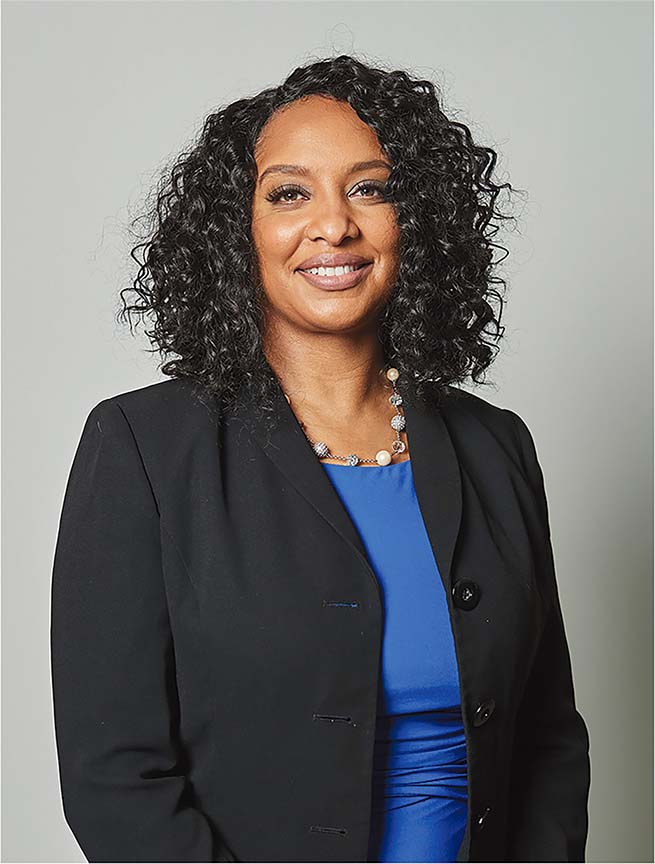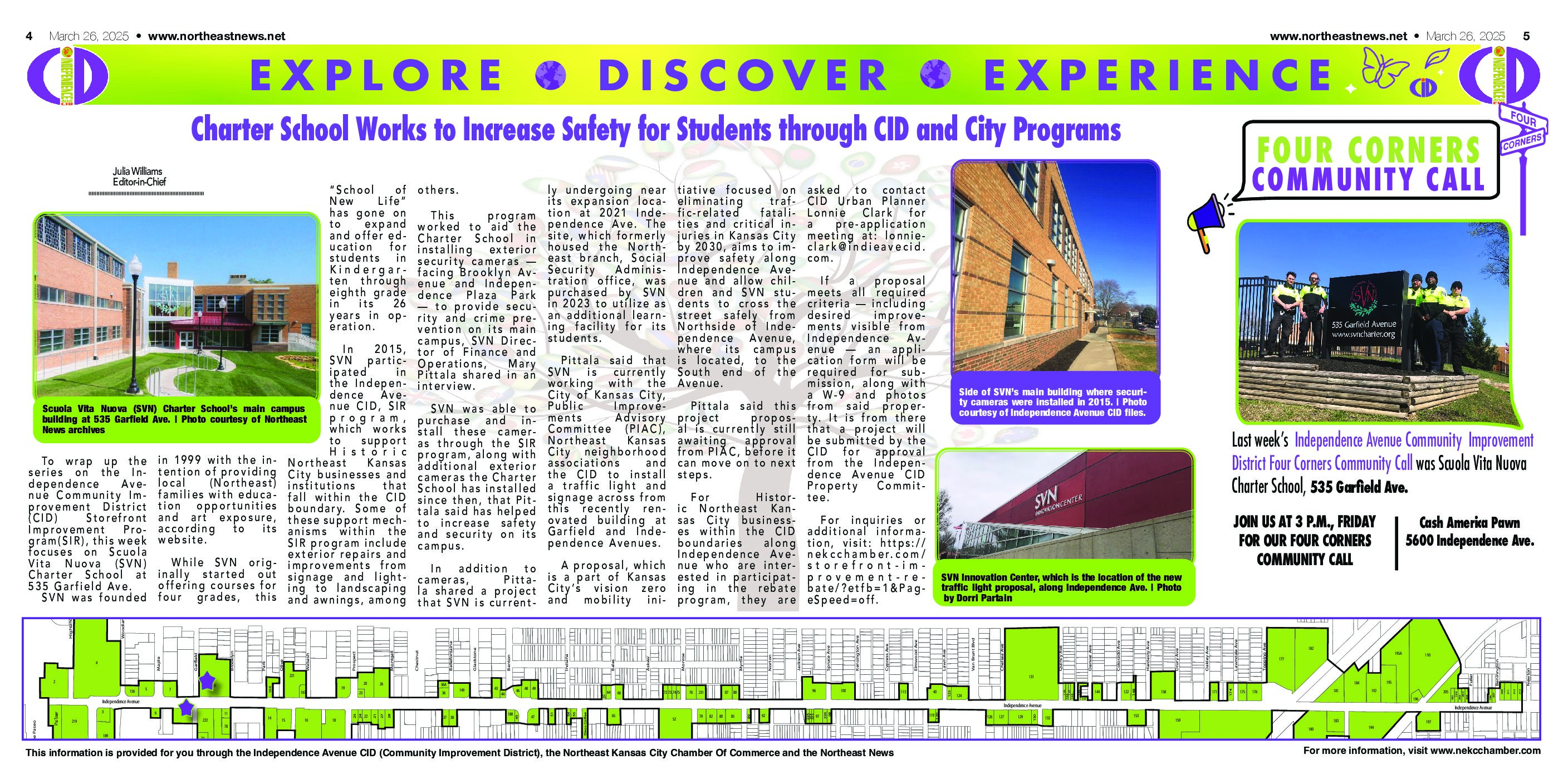

Abby Hoover
Managing Editor
A Northeast neighbor is working to create more inclusive workplaces in Kansas City and beyond.
As workers return to the workplace and adapt to new models of work, the challenges of creating truly inclusive workplaces remain largely unsolved, which is where Ally Lab comes in.
Program founders say, despite greater intentions to address issues of diversity, equity, and inclusion (DEI) in the wake of the Black Lives Matter movement and increased attention to social inequities brought on by the pandemic, employers and workers alike struggle with questions of how to build and sustain inclusive workplace cultures.
Mark Logan, Chief Collaborator at Idealect and Lykins resident, shared details of the new ALLY LAB program with the Northeast News.
“Allyship training is important because it helps allies move from good intentions to effective action,” Logan said. “Our approach to allyship training is grounded in both innovation and equity. It’s sort of ‘DEI meets Design Thinking.’”
Idealect, a Kansas City social innovation company, has launched ALLY LAB (www.allylab.org), a new initiative aimed at fostering active allyship in the workplace. ALLY LAB offers knowledge and skill building experiences for allies of people from marginalized communities. It is a unique fusion of evidence-based DEI training practices, Design Thinking methods, and an innovation process. The combination complements and enhances existing DEI training programs.
Many companies rely on traditional DEI training and HR-centered initiatives aimed at diversifying recruiting pools to achieve DEI goals. Unfortunately, many of these programs place the work of achieving those goals on the people most impacted by discrimination and marginalization. And evidence for the effectiveness of these programs is mixed at best.
“In a time where we are all adjusting to constant, multiple changes in both our personal and professional lives, it is more important than ever to establish ways to support the needs of those who are less likely to be heard in our society. Effective allyship is necessary to ensure everyone can thrive.” says Ally Lab co-founder Ghadeer Garcia.
Recent research shows that companies that actively encourage allyship in the workplace yield both business gains and improvements in worker safety and satisfaction. For example, a recent survey by Change Catalyst (changecatalyst.co/allyshipreport/) found that workers in companies that actively promoted allyship were 40% more likely to feel safe at work, 80% more likely to feel satisfied with workplace culture, and 100% more likely to feel that they belong. The survey showed a range of benefits to workers from marginalized backgrounds, from increased productivity to heightened happiness.
Ally Lab’s first offering is a free, self-paced online learning course called Allyship Essentials. It’s a foundational course intended to ensure that self-identified allies have basic knowledge and a chance to practice skills like reflection and perspective-taking, both of which have been demonstrated by research at increasing allyship behaviors in the workplace. Interested
participants can sign up for the free course at www.allylab.org.
While online training is an important platform for the group, Ally Lab will offer training in a variety of formats.
“Research shows that programs that offer multiple training modalities outperform those that offer only one. So we will continue to offer in-person workshops and series, online instructor-led sessions, hybrid sessions, in addition to the self-paced, online classes” said Logan.
The group has a number of other courses slated for release in the next few months. They include specific skills courses, such as Listening for Allies, general business courses like, Leaders as Allies, and industry-specific courses, such as Allies in Healthcare. Experimentation and iteration are key elements of the group’s approach to program development.
Ally Lab is a project of Idealect, an equity-centered innovation company (www.idealect.is). Idealect helps organizations tackle systemic inequities using an equity-centered innovation framework that uses methods from human-centered design. Idealect is a for-profit social venture.
Logan had a long career in technology and communications before launching his own consultancy in 2018.
“I do a lot of social impact projects ranging from health equity to financial equity and I got very involved with the sort of racial equity movement here in Kansas City,” Logan said. “I serve on the Community Advisory Board for the Kansas City Racial Equity Initiative.”
Logan, who also serves on the Lykins Neighborhood Association, said all of his work is oriented in that direction of equity.
“When the pandemic hit, I started getting pulled in to do a ton of COVID communications work, focusing on sort of primarily disadvantaged neighborhoods and communities, which was great because I had moved to Lykins and of course, this is one of the focus areas for the City and that kind of work,” Logan said. “And as a result, sort of all of that and my focus on equity, and my connections in the greater racial equity community, I started to get invited to help participate in DEI trainings.”
Although they hadn’t been his focus before, he had previously acquired DEI certificates and had experience leading diverse teams.
“People began to ask me to help co-facilitate because sometimes the same ideas and concepts coming out of one person’s mouth resonate better with a certain type of audience than if they come from another person’s mouth,” Logan said. “And so basically, I get to play the white man on the stage, always with co-facilitators, right. I think there’s power in having multiple identities represented in that sort of environment.”
Those experiences led him to the conclusion that a lot of DEI training, while essential, was inadequate.
“A lot of the training really seems to be oriented these days around guiding people into having uncomfortable conversations, and I kind of think we’re beyond that, right,” Logan said. “Part of this reflects just a personal impulse and a bias toward action, and part of it is just my feeling of, you know, we have been talking about these issues for decades and centuries. Now is really the time for allies who have the privilege to come forward and actually take action, and not merely be content to have conversations… The primary impetus for me, I think, was wanting to get particularly folks like me, white folks who have some privilege, to be more active and be more proactive in changing systems, changing workplaces, to make them truly inclusive places where everyone not only is present but actually feels like they belong and have some some share of power or some voice to shape the environment.”
Being a white man, he doesn’t want to take up too much space in the DEI realm.
“The center stage belongs to people who have more experience with disadvantage and discrimination in the workplace, but I discovered this sort of swim lane of allyship training and I added has become a place where I feel like my own lived experience has value,” Logan said. “I can help bring other folks who have privilege in their lives to a more active and proactive state.”
Logan said his research shows that allyship training actually has a pretty significant impact in the workplace.
“People from disadvantaged backgrounds typically report feeling safer, feeling happier, feeling more likely to be satisfied with workplace culture, feeling more likely to want to stay in their jobs,” Logan said. “There are benefits to those workers, and then there’s a pretty good body of research that shows now that there are significant benefits to companies who build and maintain inclusive cultures in terms of bottom line impacts, in terms of profitability, revenue, those sorts of things.”
When Logan talks about allyship, he takes an intersectional perspective, recognizing that marginalization can happen for a number of reasons.
“Whether it is racial, whether it’s gender, whether it’s LGBTQ+, whether it’s religious, there’s all forms, all sorts of discrimination, and the goal really is to build a universally inclusive workplace, where anyone, regardless of their identity factors, feels welcomed and included,” Logan said.
ALLY LAB offers applications for individuals who want to become stronger and better allies, and applications for mid-size and large businesses where they have broad integrated DEI programs already, but they’re looking for supplemental training specific to allyship.
“We are planning on building out a portfolio of these allyship trainings, and we are looking at specific industry verticals,” Logan said. “Certainly in spaces like healthcare, allyship is a really significant topic. The pandemic has really done a good job of bringing to light the inequities in our healthcare system, and one of the ways to mitigate those inequities is to work on increasing allyship at the point of health care delivery, and in the systems that support that delivery.”
As workers return to physical workspaces, there’s certainly a greater need for allyship, Logan said. He has heard that a number of folks who come from marginalized groups are hesitant to return to the workplace because remote work has been safe or safer for them and they’re less frequently exposed to things like microaggressions.
“Certainly, I think companies that are in the midst of navigating that return to work, whatever that looks like in this age, will benefit from allyship training,” Logan said.
One of the reasons ALLY LAB exists is to help allies do their own work.
“There are multiple opportunities to do that work, everything from sort of sitting down and really focusing in on it as you would during a course to what you choose to watch on TV, or what you choose to listen to in your podcasts and your streaming services,” Logan said. “That’s a vital concept, sort of allies doing their own work and educating themselves and not expecting people from marginalized backgrounds to do that work for them.”
ALLY LAB is actively looking for partnerships to help build out the portfolio of courses.
“We think there are opportunities to explore topics that are directly relevant to various communities,” Logan said. “For example, what does the LGBTQ+ community want from allies and what allies need to know about current issues in that community, and then we’re also building out deeper dives into specific skills, like listening skills, for allies.”



















